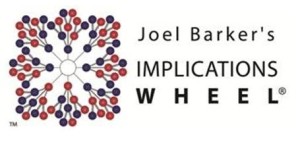“Drop the quest for innovation and adopt the mentality of entrepreneurship.” That was my essential message to of a wonderful group of rabbis from the Philadelphia Metro Area a few days ago. With the support of the Philadelphia Board of Rabbis, I had the pleasure of facilitating a highly interactive workshop with about 40 colleagues on Rabbinic entrepreneurship. What’s the difference between being innovative and being entrepreneurial? In my workbook (click, complete form and download) on Tomorrow’s Synagogue Today. Creating Vibrant Centers of Jewish Life, I wrote,
“Innovation” is a catchphrase everywhere we look, and it is often used as a substitute for entrepreneurship, but there is a difference between them:
- Innovation requires creativity but, unlike entrepreneurship, does not address issues like tolerance for risk, organizational agility, improvisational ability, and speed.
- Innovation often comes in bursts after focusing on discrete ideas and issues, while entrepreneurship requires cultivating a certain kind of culture, defined by a set of practices and attitudes that are infused throughout an organization
The rabbis completed a diagnostic assessment of readiness for moving to an entrepreneurial culture (p.19 in the workbook). Then, they divided into small groups to explore how to apply ten entrepreneurial practices to an idea about which they were passionate and bring to life in their communities. This group of rabbis was very diverse. But their passion for wanting to adopt a more entrepreneurial mindset was a feeling they shared—and they inspired me.
Rabbis are too often an unfair and handy target for undeserved criticism about the state of Jewish affairs. No doubt, we’ve earned some of the criticism. On the other hand, it’s also clear to me that many rabbis are ready to turn the dial on maintenance down and turn up the dial on entrepreneurship. The dynamic of public punishment of rabbis who take risks, and their reactive tendency to then play it safe, is one that each side should acknowledge and change. And when that happens, congregants, rabbis and the broader Jewish community will begin to enjoy both the rootedness of a community and the excitement of an incubator for fresh Jewish life.
If you’re interested in learning more about how your leadership can become more entrepreneurial, please contact me and let’s start the discussion! I’ve heard many of your ideas and it’s time for you to turn them into realities.
